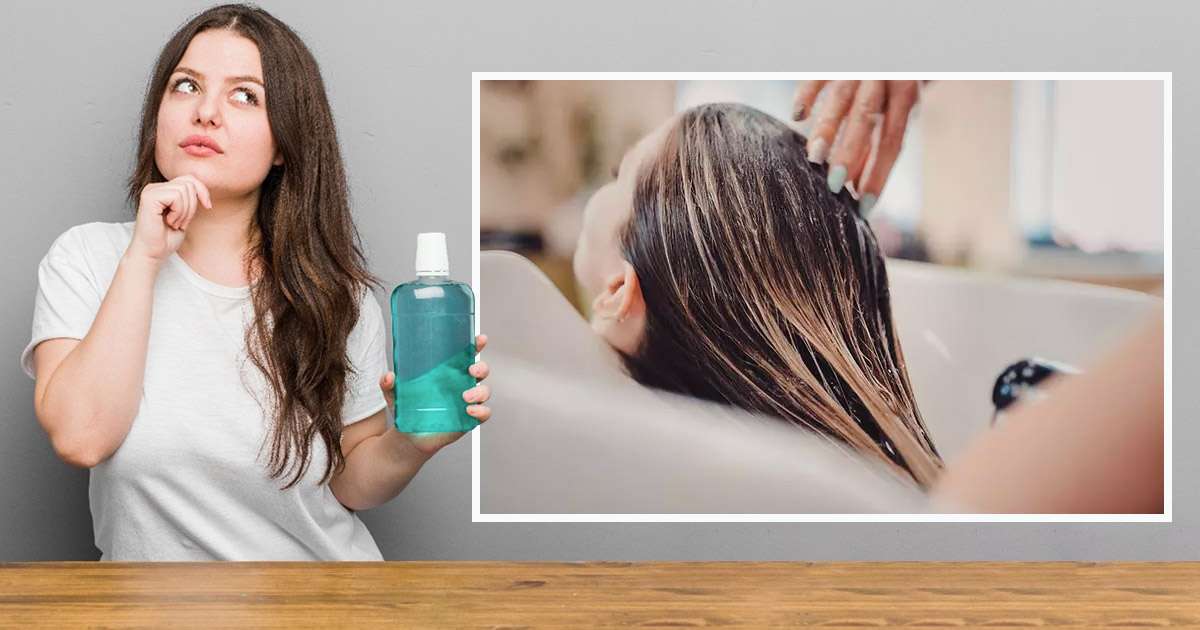Listerine for Dandruff: Is it a Real Scalp Soother?

Dealing with dandruff can be frustrating and embarrassing. Those unsightly white flakes on your shoulders and scalp never fail to make you self-conscious. While there are many over-the-counter anti-dandruff shampoos available, some people swear by an unexpected solution—Listerine mouthwash. But is Listerine effective for dandruff, and is it safe to use on your scalp?
What is dandruff?
Before we discuss using Listerine for dandruff, it’s important to understand what dandruff is. Dandruff is a common scalp ailment in which white or yellow flaky skin sheds from the scalp. Malassezia, a fungus that feeds on scalp oils (sebum), is the root cause of it.
Most people develop dandruff at some point in their lives. While it is not contagious or hazardous, it can be ugly and cause itching and discomfort. Severe cases of dandruff can even lead to red, scaly patches and hair loss.
What is Listerine?
Listerine is a popular brand of mouthwash and breath freshener. Its key ingredients are menthol, thymol, eucalyptol, and methyl salicylate—compounds with antifungal, antibacterial, and antiseptic properties.
Using Listerine for Dandruff
The theory behind using Listerine for dandruff is that its active ingredients can help control the overgrowth of the Malassezia fungus that causes dandruff. When applied to the scalp, Listerine is thought to reduce fungal levels, decrease inflammation, and alleviate flaking and itching.
Many people who have used Listerine for dandruff have reported excellent outcomes after a few weeks of constant use. Some even claim it’s more effective than commercial anti-dandruff shampoos. However, limited scientific research exists on the efficacy of this unconventional treatment.
How to Use Listerine for Dandruff
If you want to give Listerine for dandruff a try, here’s how:
- Dilute the Listerine: Undiluted Listerine can be quite harsh on the scalp and hair. Before applying it, dilute it with an equal amount of water.
- Part your hair and apply: Section off your hair and use a cotton ball or your fingertips to apply the diluted Listerine directly to your scalp. Massage it in gently.
- Let it sit: Allow the Listerine solution to sit on your scalp for 5–10 minutes to give the active ingredients time to work.
- Rinse thoroughly: Rinse your hair and scalp thoroughly with water to remove all Listerine residue.
- Follow with a gentle shampoo: After rinsing, rinse your hair and scalp with a gentle, fragrance-free shampoo.
To achieve the best results, use this Listerine for dandruff treatment 2-3 times per week. Be patient, as it may take many weeks of constant use to see noticeable results.
Listerine for Dandruff: Potential Side Effects and Precautions
While using Listerine for dandruff is a popular DIY remedy, it’s important to be aware of the potential side effects and take the necessary precautions to avoid any adverse reactions or unintended consequences.
Scalp Irritation and Dryness
The menthol, alcohol, and other active ingredients in Listerine can be quite drying and irritating to the scalp, especially if used undiluted or too frequently. This can lead to redness, stinging, itching, and excessive dryness, potentially worsening the very issue you’re trying to treat.
Hair Damage and Breakage
Listerine’s drying effects can also damage hair, leaving it feeling brittle and dry and prone to breakage and split ends. This is especially true if you use it regularly or leave it on your hair for long periods of time.
Allergic Reactions
Some people may be allergic or sensitive to Listerine’s components, which include menthol, eucalyptol, and methyl salicylate. Using it on the scalp can potentially cause allergic reactions like rashes, hives, or even more severe symptoms like difficulty breathing.
Toxicity Concerns
While Listerine is designed for oral use, ingesting large amounts can be toxic. When using it as a scalp treatment, take care not to swallow any of the solution and rinse thoroughly afterward.
Color and Scent Transfer
Listerine’s distinctive color and strong minty scent can potentially transfer to your hair, pillowcases, or clothing if not rinsed out properly.
Is Listerine good for dandruff?
The jury is still out on this unconventional remedy. Although many users report beneficial outcomes, there is little scientific proof to back up its effectiveness. Using Listerine for dandruff is considered an off-label use, and it’s not specifically formulated or tested for this purpose.
When using Listerine to treat dandruff, follow the directions for dilution and application. Be cautious when using it, and watch for any negative side effects. Recall that seeking expert treatment from a dermatologist is the recommended course of action if your dandruff continues or gets worse.

